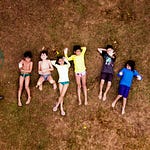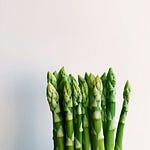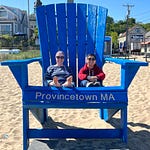The omniscient point of view, beloved by 19th century authors and most often found in the western literary canon, but this perspective came under suspicion in the early 1900s, only to recently make a strong recurrence. And it might just be the most difficult point of view to handle. What is third and first person omniscient? What are the best practices behind handling this point of view and why might you want to avoid it? We discuss these questions with our guests Weike Wang and Julia Rold.
Julia Rold is a fiction writer, essayist, and playwright whose work has appeared in The Missouri Review, The Boston Globe Magazine, the Best New Voices collection, and named for a Pushcart Prize. Her plays have been staged at the Boston Center for the Arts, The Electric Theatre, and the Boston Playwrights’ Theatre. A winner of Artist Grants in both playwriting and fiction from the Massachusetts Cultural Council, she has also received awards from the St. Botolph Foundation, has been a Fulbright Scholar to El Salvador, and has twice been among the winners of the Faulkner-Wisdom Award for Novella. She currently is on faculty in the School of Critical Studies at California Institute of the Arts (CalArts) in Los Angeles.
Weike Wang is the author of CHEMISTRY (Knopf 2017) and JOAN IS OKAY (Random House 2022). She is the recipient of the 2018 Pen Hemingway, a Whiting award and a National Book Foundation 5 under 35. She earned her MFA from Boston University and her other degrees from Harvard. She currently lives in New York City and teaches at the University of Pennsylvania, Columbia University and Barnard College.
Also recommended during our discussion: Robert Boswell’s chapter “On Omniscience” in his craft book The Half Known World. Find my list of favorite craft books and the most recent works by our guest authors here: https://bookshop.org/shop/the7amnovelist













Share this post